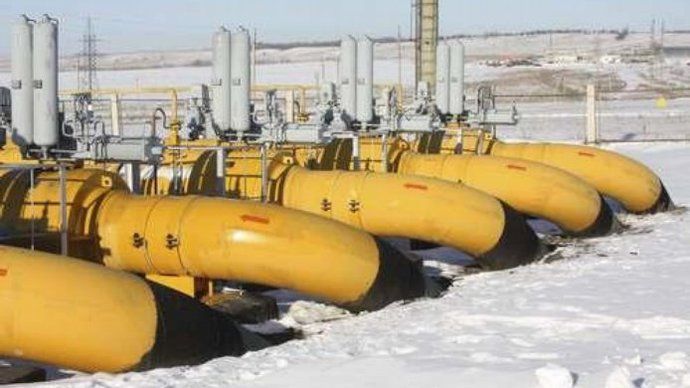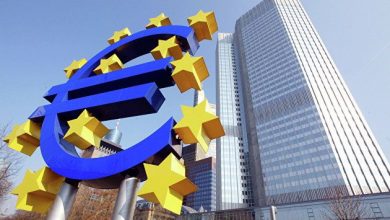Gas crisis and Europe
The decision of the Russian gas monopoly of Gazprom to stop the supply of blue fuel through Ukraine again put the issue of European energy security on the agenda. Why does the Old World really need Russian gas? Will Gazprom and the EU manage without each other?
WHAT CAUSED THE NEW YEAR CRISIS?
Russia stopped supplying Ukraine with gas on January 1, saying it would only pump fuel destined for European consumers into the “pipe”.
Negotiations on the price of gas for Ukraine in 2009 ended to no avail.
Russia offered to supply gas at $ 250 per thousand cubic meters, provided that the price of gas transit to Europe remains at the same level – $ 1.7 per thousand cubic meters per 100 kilometers.
Russian Prime Minister Vladimir Putin called the proposal “very preferential.”
Ukraine, for its part, agreed to pay $ 235 per thousand cubic meters of gas and demanded an increase in the transit price to $ 2.2 per thousand cubic meters per 100 kilometers.
Having not come to an agreement with Kiev, Moscow raised the requirements to $ 418 per thousand cubic meters, emphasizing what exactly what Western consumers pay.
According to experts, such a price is unbearable for the Ukrainian economy.
In addition, Gazprom believes that the Ukrainian state-owned energy company Naftogaz Ukrainy owes him $ 1.6 billion for last year’s supply and $ 450 million in fines and penalties.
Naftogaz claims to have fulfilled its obligations by transferring $ 1.5 billion to the accounts of RosUkrEnergo, an intermediary company registered in Switzerland, and disputes the penalties.
Russia accuses Ukraine of unauthorized selection of gas for its needs. In turn, Kiev explains the tough stance of Moscow by the desire to privatize the Ukrainian pipeline system and political considerations.
ECONOMY? OR POLICY?
Gazprom, created on the basis of the former USSR Ministry of Gas Industry, is extremely closely connected with the state. For example, Russian President Dmitry Medvedev previously headed the board of directors of the concern.
According to many observers, Russia uses its energy resources as a political weapon in order to get from Europe, and especially from the post-Soviet states, concessions on issues not related to oil and gas trade.
The disruption of export deliveries seriously damaged Russia’s image as a reliable supplier.
For his part, Vladimir Putin also sees a political component in the situation. He explains the lack of gas clan deals with Ukraine between the president of this country, Viktor Yushchenko, and Prime Minister Yulia Tymoshenko.
HOW HAVE EUROPE BEEN AFFECTED?
Both Russia and Ukraine assure that the EU will not become a hostage to their bilateral relations on the issue of gas supplies.
However, after the New Year, this supply was significantly disrupted. Different EU countries have suffered to varying degrees.
On January 7, 10 states reported that they were completely cut off from Russian gas supplies.
The EU called what was happening “completely unacceptable”, demanded an immediate resumption of supplies and called on Kiev and Moscow to resolve their dispute as soon as possible.
Gazprom controls a third of the world’s gas reserves and satisfies a quarter of Europe’s blue fuel needs.
Most of these deliveries go through Ukraine.
As a result, Europe’s gas supply fell by 40%. Even distant France was affected.
Since 2006, Ukraine has accumulated gas reserves in storage facilities, allowing several to survive for several months. Most European countries have done the same.
Gazprom seeks to build new gas pipelines along the bottom of the Baltic and Black Seas so as not to depend on the transit countries, Ukraine and Belarus.
German companies E.ON Ruhrgas and Wintershall and the Dutch Gasunie participate in the Nord Stream project together with the Russian gas monopolist, and Italian ENI in the South Stream project.
WILL THE EU AND GAZPROM BE ABLE TO OTHER WITHOUT EACH OTHER?
Europe is worried about dependence on Russia and seeks to diversify its gas supply sources.
The most famous project of this kind is the Nabucco pipeline from Central Asia through Turkey and further to Europe.
However, after completion of construction, it will be able to satisfy no more than 5% of the EU’s gas needs.
On the other hand, in recent years, 46% of Russia’s gas export revenues came from Europe.
Thus, the EU and Gazprom need each other.
A number of Western experts indicate that energy trade was uninterrupted even during the Cold War.
In addition, despite the events of recent days, analysts say that it is better to have Gazprom as your partner than, for example, the potentially unstable regimes in Turkmenistan and Uzbekistan.
Europe is still waiting for Russian gas
EU representatives are disappointed that Russian gas supplies to Europe through Ukraine are still not renewed, despite agreements between representatives of Kiev, Moscow and Brussels.
On Tuesday, Gazprom announced the resumption of fuel pumping westward through the Ukrainian gas transportation system. However, the head of the Russian gas company noted that on Tuesday evening, Naftogaz Ukrainy refused to export Russian gas through the Uzhgorod gas metering station in the direction of Slovakia.
Ukraine, in turn, noted that it could not pass gas through the Suja gas metering station, where Russia began to supply gas on Tuesday, as this would leave several regions without fuel – Donetsk, Odessa and partially Dnepropetrovsk.
The Russian side, in turn, insists on precisely such a route for gas supplies, since, according to its statements, the fuel will go to the countries that need it the most.
The gas war between Kiev and Moscow led to interruptions in gas supplies to 18 European countries. The situation is significantly aggravated by the season during which the fuel crisis erupted: in the winter cold, many countries are experiencing interruptions in heating, in some regions of southeastern Europe, industrial enterprises stop.
EU concern
On Wednesday, the prime ministers of Bulgaria and Slovakia, the two countries most affected by the conflict, will leave for Kiev and Moscow. It is expected that Bulgarian leader Sergei Stanishev and Slovak Prime Minister Robert Fico will meet with the heads of government of Russia and Ukraine. It is not yet clear in what order these meetings will be held.
European Commission President Jose Manuel Barroso held a telephone conversation on Tuesday with Russian Prime Minister Vladimir Putin, in which he expressed disappointment that Russian gas supplies were still not renewed.
He also expressed concern that European observers did not have full access to control centers at Russian gas facilities.
On Tuesday evening, it also became known that Barroso had a telephone conversation with the head of the Ukrainian government, Yulia Tymoshenko. According to Interfax, the parties “agreed to more actively engage European experts in monitoring the process of Russian gas supplies to EU countries.”
On Tuesday evening, European Parliament President Hans-Gert Pottering called on both Russia and Ukraine to implement the gas supply agreement.
“I urge both the Ukrainian and Russian authorities to implement the agreement reached through the mediation of the European Union, which they also signed,” Pottering said. “In particular, EU technical specialists should be given full access to facilities in both Ukraine and Russia.”
Pottering added that EU citizens were “under the crossfire” of a bilateral dispute between Kiev and Moscow.
The problem of technical gas
The Protocol on the Control of Gas Supply, signed by Ukraine, Russia and the EU, assumes the presence of European observers at the main gas facilities in Russia and Ukraine.
Moscow says observers should prevent theft of Russian gas by Naftogaz Ukrainy, but Kiev denies that it illegally uses gas destined for European consumers.
Ukraine requires Russia to provide for the transportation of gas additional volumes of fuel – the so-called technical gas.
Earlier, Prime Minister of Ukraine Yulia Tymoshenko announced that the Ukrainian company will use Russian gas to operate gas pumping equipment. The Ukrainian side promises to pay for this fuel only after signing the contracts and receiving payment for gas transit to Europe.
Gazprom does not agree with this: according to Alexander Medvedev, the gas transit should provide itself with technical gas.
The Russian gas monopoly announced force majeure circumstances that led to the cessation of gas supplies to Europe, and filed a lawsuit against Ukraine in the International Arbitration Court in Stockholm.
Russian gas supplies to Ukraine have been cut off since early 2009. The reason was an unresolved dispute about the cost of Russian gas to Ukrainian consumers and the payment for fuel transit through Ukrainian territory.
Gazprom demands a rise in gas prices for Ukraine to the level of 450 dollars per thousand cubic meters; at the same time, in 2008 Kiev bought Russian fuel at $ 179.5 per thousand cubic meters.
Political charges
Some experts see political motives in Russia’s decision to sharply increase the price of gas for Ukraine, as well as the desire to seize gas pipelines and gain control over Ukrainian industrial enterprises.
If the parties are actively trying to resolve the issue of transit of Russian gas to Europe, negotiations on the cost of fuel for Ukraine have not even begun.
The deputy head of Gazprom, Alexander Medvedev, made it clear that in his opinion, the position of Ukraine in the gas conflict was formed under the influence of some external forces – for example, the position of the United States. “Everything looks like they are not dancing to the music that is performed by Ukraine,” Medvedev said.
However, Sean McCormick, spokesman for the US Department of State, rejected such assumptions as “completely unfounded.”
Meanwhile, Ukrainian President Viktor Yushchenko told reporters on Tuesday that Russia had organized a gas crisis, intending to split Ukraine and turn public opinion in favor of building gas pipelines bypassing its territory.
Russia denies that there is a political motive in the gas dispute, insisting that Ukraine must pay the market price for gas.
Europe must get rid of its dependence on Gazprom
Russian President Dmitry Medvedev invited the leaders of the European Union and Ukraine to a summit in Moscow to discuss the conflict over natural gas supplies through Ukraine. The gravity of this crisis is forcing Europe to reconsider its dependence on Russian gas.
But the process of ensuring energy security in Europe will be long and complicated. The main priority is the creation of connecting nodes between the pipelines of all EU countries. EU officials say that Bulgaria and Slovakia have suffered so much because of the cessation of Russian gas supplies, because their infrastructure is practically isolated from the rest of Europe and other European countries could not help them.
However, the creation of new infrastructure will cost a lot of money, and the private sector is unlikely to agree to this, since new pipelines will be used only during times of crisis.
Among other possibilities is the idea of building pipelines directly linking Russia with Europe. Opponents of this option argue that this will only increase the EU’s dependence on Russia. Some propose a return to the Nabucco project – the construction of a gas pipeline bypassing both Russia and Ukraine, which would connect Europe with the Caspian region. However, it is not yet clear whether there are enough gas reserves in this region.
Another idea is the import of liquefied gas. In 2007, approximately 10% of imported gas was imported into Europe precisely in liquefied form, and now the construction of the necessary infrastructure is underway. But this form of gas imports is also associated with problems: the main suppliers can hardly be called reliable.
Many in Europe talk about the development of the use of solar energy and other environmentally friendly energy sources. Slovakia and Bulgaria – at least temporarily – are about to restart their nuclear power plants.
The EU can expand its range of energy suppliers, but it will take time and money. Meanwhile, Europe has no other choice but to achieve cooperation from Russia and Ukraine.
Russia’s refusal to supply gas to Europe and Ukraine’s refusal to pass this gas through its territory put European politicians in a position in which they either publicly express their anger, then beg the Kremlin to resume supplies, or accuse Russia of duplicity.
The verbal won between Kiev and Moscow continues. Despite the agreement concluded on Monday, Russia continues to supply insufficient volumes of gas, while Ukraine still does not agree to the proposed transit route.
In the short term, Europe is not in a position to influence Russia – no matter how tough the European Commission President Jose Manuel Barroso speaks to Russian Prime Minister and no matter how duplicitous the European leadership considers Putin.
The way Putin deals with the gas crisis is most of all like folly. He discovered the most effective way to turn the so-called sphere of influence of Russia into a sphere where countries either do not trust Russia or hate it and urgently seek ways to reduce their dependence.
If Russia managed to avert even Bulgaria, which until now was the most loyal supporter of Russia in the European Union, then it is facing serious problems.
Vladimir Putin may say that he plans to sell more gas to the east rather than the west, but he has bad cards in his hands, Times said. Energy prices have fallen so much that his government cannot balance the budget. President Medvedev said Gazprom lost more than $ 1 billion because of a dispute with Ukraine.
But by warning Ukraine that the time for gifts was over, Putin only emphasized Russia’s mistake. He managed to convey what the EU or NATO could do better – that Ukraine and other countries of the former Soviet bloc should seek friends in the west, and not in the east.
In the same newspaper, in a separate article on the same subject, the Kremlin says that the time for this crisis was poorly calculated. A year ago, Gazprom was considered the third largest corporation in the world.
But the credit crisis and falling energy prices put an end to this. Gazprom shares fell 76%, the company’s debts reached $ 50 billion. Given his income, Gazprom is not bankrupt yet, the newspaper continues, but he cannot afford to pump gas – and at the same time find £ 32 billion in order to build two new pipelines bypassing Ukraine.
These pipelines are the basis of Putin’s policy under the motto “divide and rule”. According to the newspaper, the Russian prime minister hopes that the current crisis with gas transit through Ukraine will convince Europe to invest in these projects.
However, Europe should completely abandon this, the Times said. Instead, the EU should offer assistance in concluding a fair and long-term agreement with Kiev, as Ukraine has enough pipelines for European needs. Moreover, the EU should insist that Russia is obliged to open the energy sector of its economy to foreign investment, as otherwise Gazprom’s activities in Europe itself could be severely limited.
But the most important thing is the need to reduce Europe’s dependence on Gazprom. Environmental considerations have led many to forget about Europe’s energy security issues. After Putin put Europe in the refrigerator, it was time to remember this.
This post is also available in:
 English
English  Русский (Russian)
Русский (Russian)



